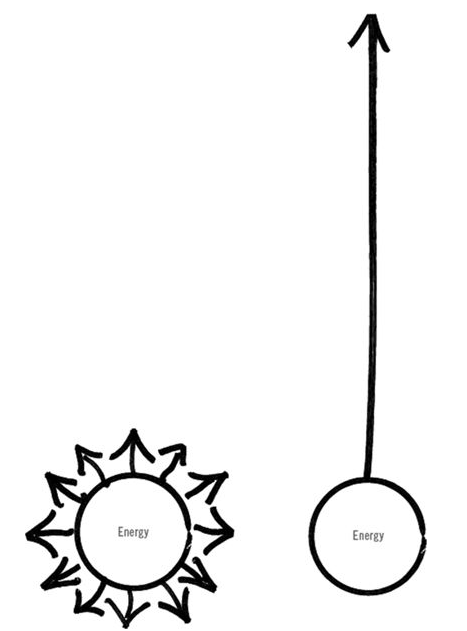I’ve been blown away by one of the books on my summer reading list, Essentialism: The Disciplined Pursuit of Less by Greg McKeown. It’s one of those “Where have you been all my life?” kind of books and it’s come at such an opportune time in my own life as I’ve just hired a virtual assistant, and I’m also deciding what to cut from my life in order to do less better.
That matches the basic value proposition of Essentialism: “Only once you give yourself permission to stop trying to do it all, to stop saying yes to everyone, can you make your highest contribution towards the things that really matter.”
Essentialism is not about how to get more things done; it’s about how to get the right things done. Especially in our interconnected world, there are far more activities and opportunities than we have time and resources to invest in. Many of these are good, even very good, but few are vital.

So what’s the essential difference between an essentialist and a non-essentialist? It can be summed up in this diagram.
In both images the same amount of effort is exerted. In the image on the left, the energy is divided into many different activities. The result is that we have the unfulfilling experience of making a millimeter of progress in a million directions. In the image on the right, the energy is given to fewer activities. The result is that by investing in fewer things we have the satisfying experience of making significant progress in the things that matter most.
The latter requires hard choices, discipline, and trade-offs. But, as McKeown says, “If you don’t prioritize your life, someone else will.” Or as Jim Collins found out in How The Mighty Fall, “the undisciplined pursuit of more” was a key reason for most corporate failures.
McKeown hardly needs to make the argument that the modern world has turned many of us into non-essentialists, but he traces this damaging trend to three factors:
1. Too many choices causing us to lose sight of the most important ones.
2. Technology and hyperconnectivity have increased the strength and number of outside social influences on our decisions.
3. The idea that we can do it all.
He underlines the necessity of fighting this trend with the story of hospice nurse Bronnie Ware who recorded her dying patients’ most common regret. At the top of the list: “I wish I’d had the courage to live a life true to myself, not the life others expected of me.”
To avoid such a sad end, “requires not just haphazardly saying no, but purposefully, deliberately, and strategically eliminating the nonessentials, and not just getting rid of the obvious time wasters, but cutting out some really good opportunities as well.”
And that’s where Essentialism excels as it presents a clear four-step process that begins with developing an essentialist mindset and takes you all the way through to execution.
1. ESSENCE: THE MINDSET OF AN ESSENTIALIST
There are three deeply entrenched assumptions we must conquer to live the way of the Essentialist: “I have to,” “It’s all important,” and “I can do both.” To embrace the essence of Essentialism requires we replace these false assumptions with three core truths: “I choose to,” “Only a few things really matter,” and “I can do anything but not everything.”
2. EXPLORE: DISCERNING THE TRIVIAL MANY FROM THE VITAL FEW
Essentialists systematically explore and evaluate a broad set of options before committing to any. Because they will commit and “go big” on one or two ideas or activities, they deliberately explore more options at first to ensure that they pick the right one later.
3. ELIMINATE: CUTTING OUT THE TRIVIAL MANY
The key to making our highest contribution may be to say “No.” The real question is not how can we do it all, it is who will get to choose what we do and don’t do.
4. EXECUTE: REMOVING OBSTACLES AND MAKING EXECUTION EFFORTLESS
Essentialists invest the time they have saved into creating a system for removing obstacles and making execution as easy as possible.
I do have some reservations about applying this rigidly to the Christian life and particularly to Christian ministry, partly because of the danger of developing a self-centered spirit, and partly because God can easily turn what seem to us to be trivial time-wasters into massive ministry opportunities and gains.
However, despite these cautions, I believe the vast majority of us would not only benefit spiritually from this book but also become more effective and fruitful in our various callings and ministries.
Essentialism: The Disciplined Pursuit of Less by Greg McKeown.

Pingback: What’s Essential? | Random Thoughts From a Cluttered Mind
Pingback: Midweek @ Grace | Grace Community Church